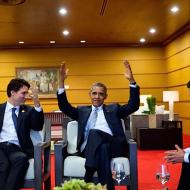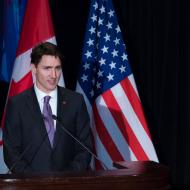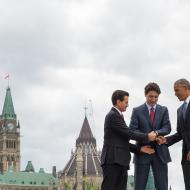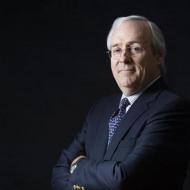Canada ended the Second World War as the third-ranking world power.
Though greatly eclipsed by the United States (and the Soviet Union), Canada was positioned ahead of the traditional great powers, France, Germany, the U.K. and China. Weakened by war, none were able to play a substantial role on the world scene.
At the crucial juncture when postwar direction was set and the Bretton Woods institutions, the UN and NATO established, policies championed by the U.S. dominated the world.
Enjoying a brief period of enhanced stature because of its strong (centrally planned) wartime economy, Canada developed a "quiet diplomacy" approach to the world hegemonic power.
The idea was to use close relations with the U.S. to exert influence on the world scene.











Comments
Do
Don't